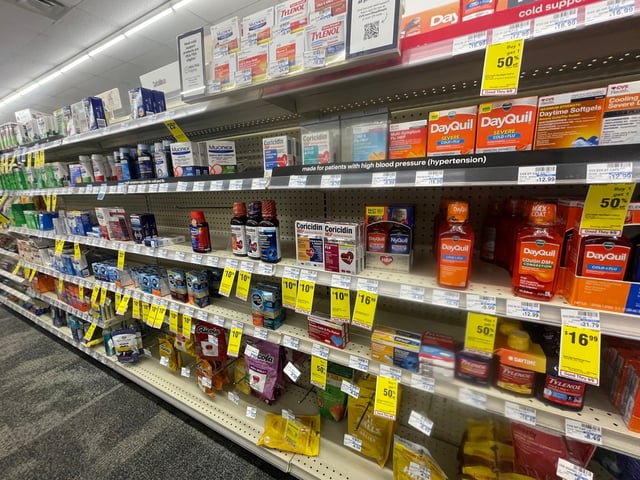Popular Decongestants Deemed Ineffective
As retailers ramp up for cold and allergy season, they may be getting more questions from shoppers about certain over-the-counter (OTC) treatments. This week, an advisory panel to the U.S. Food and Drug Administration (FDA) agreed in a 16-0 vote that oral medications containing phenylephrine don’t actually ease congestion symptoms.
Phenylephrine is an ingredient found in popular medications such as Benadryl Allergy Plus Congestion, Sudafed PE Sinus Congestion, Theraflu and Vicks DayQuil Severe Cold, among others. It purportedly works by reducing blood vessel swelling in the nose. According to the FDA, oral decongestants with phenylephrine racked up $1.8 billion in sales last year.
[Read more: "What's Happening to Winn-Dixie, Harveys Pharmacies Amid Acquisition?"]
The panel was convened by the FDA following a petition by researchers at the University of Florida who shared results of studies on the oral drugs’ ineffectiveness. Members of the advisory committee reviewed a stack of evidence during their meeting and came to a unanimous conclusion. “Modern studies, when well conducted, are not showing any improvement in congestion with phenylephrine,” said Dr. Mark Dykewicz, an allergy specialist at the Saint Louis University School of Medicine, in an Associated Press story.
Added Jennifer Schwartzott, a patient representative who took part in the review: "I feel this drug in this oral dose should have been removed from the market a long time ago. Patients require and deserve medications that treat their symptoms safely and effectively and I don't believe that this medication does that."
Advisory panel members also noted that increasing the level of phenylephrine isn’t an option, because the substance can cause high blood pressure at greater doses.
Based on the vote, FDA may decide to compel drug manufacturers to remove medications with phenylephrine. The agency has not yet released a statement yet.
Already, legal actions are in the works. On Sept. 12, a proposed class action lawsuit was filed in a California court contending that consumers have spent money on medications that do not alleviate their symptoms. The suit listed several manufacturers and retailers as defendants, including Johnson & Johnson, GlaxoSmithKline, Reckitt Benckiser, Bayer Healthcare, Sanofi, Procter & Gamble, Church & Dwight Co., Walmart, Target, CVS Pharmacy, Walgreens, Albertsons Cos., Rite Aid and Amazon.com, according to a report by Classaction.org.






